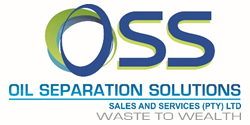Oil Separation Solutions Document Library
International Regulations
Minimata Convention
The Minamata Convention on Mercury is a global treaty to protect human health and the environment from the adverse effects of mercury…
Please click below logo for more information…
Montreal Protocol
The Montreal Protocol on Substances that Deplete the Ozone Layer (a protocol to the Vienna Convention for the Protection of the Ozone Layer) is an international treaty designed to protect the ozone layer by phasing out the production of numerous substances that are responsible for ozone depletion.
Please click below logo for more information…
RIO Declaration
Produced at the Earth Summit in 1992 was the Rio Declaration on Environment and Development which set out 27 guiding principles for sustainable development throughout the world. It states that the only way to have any form of long term growth is to ensure that it is grounded in the context of environmental protection.
South Africa signed the RIO Declaration in 2002 therefore Customers must acknowledge Principle 16, in particular, which states that “The Polluter Pays”
“National authorities should endeavour to promote the internalization of environmental costs and the use of economic instruments, taking into account the approach that the polluter should, in principle, bear the cost of pollution, with due regard to the public interest and without distorting international trade and investment.”
Please click below logo for more information…
Rotterdam Convention
The Rotterdam Convention is a multilateral treaty to promote shared responsibilities in relation to importation of hazardous chemicals.
Please click below logo for more information…
Basel Convention
The Basel Convention on the Control of Transboundary Movements of Hazardous Wastes and Their Disposal is an international treaty that was designed to reduce the movements of hazardous waste between nations, and specifically to prevent transfer of hazardous waste from developed countries to less developed countries (LDCs).
(It does not, however, address the movement of radioactive waste.)
Please click below logo for more information…
ROSE Foundation
The ROSE Foundation (Recycling Oil Saves the Environment) is a national non-profit organization established to promote and encourage recycling of used oil.
OSS Sales and Services (PTY)Ltd is proud to support this initiative.
Please click below logo for more information…
South African Environmental Laws
SAWIS
The South African Waste Information System (SAWIS) developed by the Department of Environmental Affairs (DEA) in 2005, is a system used by government and industry to capture routine data on the tonnages of waste generated, recycled and disposed of in South Africa on a monthly and annual basis.
Please click below logo for more information…
Any Generator generating 20kg’s or more of hazardous waste per day is required by the Department of Environmental Affairs (DEA) to registering this information by logging in on their website.
Please click below on the Registration bubble for PDF Document/presentation which explains the registration process.
Please click below logo for more information…
South African Constitution Section 24: Environment
Everyone has the right to an environment that is not harmful to their health or well-being and to have the environment protected, for the benefit of present and future generations, through reasonable legislative and other measures that:
- prevent pollution and ecological degradation;
- promote conservation; and
- secure ecologically sustainable development and use of natural resources while promoting justifiable economic and social development.
Please click below logo for more information…
NEMWA: National Environmental Management: Waste Act
The Purpose of The National Environmental Management: Waste Act No. 59 of 2008 is:
- To reform the law regulating waste management in order to protect health and the environment by providing reasonable measures for the prevention of pollution and ecological degradation and for securing ecologically sustainable development;
- To provide for institutional arrangements and planning matters;
- To provide for national norms and standards for regulating the management of waste by all spheres of government;
- To provide for specific waste management measures;
- To provide for the licensing and control of waste management activities;
- To provide for the remediation of contaminated land;
- To provide for the national waste information system;
- To provide for compliance and enforcement;
- and to provide for matters connected therewith.
Please see the department Of Environmental Affairs Republic of South Africa’s website…






















